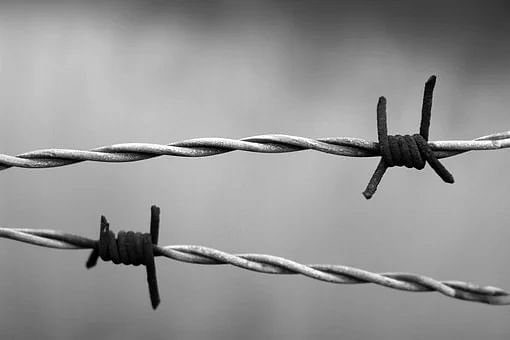
Uighur activists said Tuesday they have documented nearly 500 camps and prisons run by China to detain the ethnic group, alleging that China could be holding far more than the commonly cited figure of one million people.
The East Turkistan National Awakening Movement, a Washington-based group that seeks independence for the mostly Muslim region known to China as Xinjiang, gave the geographic coordinates of 182 suspected "concentration camps" where Uighurs are allegedly pressured to renounce their culture.
Researching imagery from Google Earth, the group said it also spotted 209 suspected prisons and 74 suspected labor camps for which it would share details later.
"In large part these have not been previously identified, so we could be talking about far greater numbers" of people detained, said Kyle Olbert, the director of operations for the movement.
"If anything, we are concerned that there may be more facilities that we have not been able to identify," he told a news conference in suburban Washington.
Anders Corr, an analyst who formerly worked in US intelligence and who advised the group, said that around 40 percent of the sites had not been previously reported.
Rights advocates have generally estimated that China is detaining more than one million Uighurs and members of other predominantly Muslim Turkic ethnicities.
But Randall Schriver, the top Pentagon official for Asia, said in May that the figure was "likely closer to three million citizens" -- an extraordinary number in a region of 10 million people.
Olbert said that archive imagery from alleged camp sites showed consistent patterns -- steel and concrete construction over the past four years along with security perimeters.
He said that the group tried to verify the nature of each site with on-the-ground accounts but declined greater detail, citing the need to protect sources.
Activists and witnesses say China is using torture to forcibly integrate Uighurs into the Han majority, including pressuring Muslims to give up tenets of their faith such as praying and abstaining from pork and alcohol.
Olbert described China's policy as "genocide by incarceration," fearing that Uighurs would be held indefinitely.
"It's like boiling a frog. If they were to kill 10,000 people a day, the world might take notice," he said.
"But if they were just to keep everyone imprisoned and let them die off naturally, perhaps the world might not notice. I think that's what China is banking on," he said.
China has justified its policy after first denying the camps, saying that it is providing vocational training and coaxing Muslims away from extremism. Hundreds died in 2009 riots in Xinjiang's capital Urumqi that largely targeted Han Chinese.
The United States has likened China's treatment of Uighurs to Nazi Germany's concentration camps but an increasingly strong Beijing has faced limited criticism outside the West.
China last month secured a statement at the United Nations by nations including Russia, Pakistan and Egypt -- which have all faced criticism of their own records -- that praised Beijing's "remarkable achievements in the field of human rights."
The Uighur activist group said it periodically added data including on the destruction of cemeteries in Xinjiang, which was documented in an investigation last month by AFP using satellite imagery.
The movement said it had unsuccessfully asked the State Department for satellite data in hopes of improving its information sources.